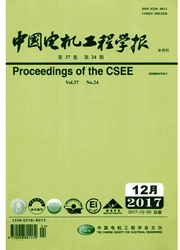

 中文摘要:
中文摘要:
数字控制已成为新型脉宽调制(pulse width modulation,PWM)逆变电源控制技术发展的主流,然而传统的PID模拟控制方案在逆变电源的数字实现中效果不如模拟控制,该文从零阶保持过程和滞后一拍控制这2方面分析数字化过程对PWM逆变电源性能的影响机理,得出结论如下:由于数字控制零阶保持的作用,逆变电源的开环特性随着采样频率发生较大变化;零阶保持过程改变了PWM逆变电源闭环系统稳定性,相对于模拟控制稳定范围大大降低;随采样周期不同,滞后一拍控制改变了数字PWM逆变电源闭环稳定性。实验验证了分析的正确性。
 英文摘要:
英文摘要:
Digital control has become main-stream in the development of new pulse width modulation (PWM) inverter control strategy, while the performance of the traditional PID control strategy realized by digital method is not so good as that realized by analog control. The reason why the digital process influences the performance of digitally controlled PWM inverter was analyzed from two aspects. One is the process of zero-order hold and the other is one-step-delay control which is usually adopted in digital control. Three conclusions are achieved: The open-loop frequency characteristic of the digitally controlled inverter system varies with sampling frequency due to the process of zero-order-hold; The closed loop stability of the PWM inverter system changes due to the zero-order-hold process, and the steady range is lessened greatly compared with analog control; The system’s stability varies with sampling period due to the one-step-delay control. Experimental results show that the theoretical analysis is correct.
 同期刊论文项目
同期刊论文项目
 同项目期刊论文
同项目期刊论文
 期刊信息
期刊信息
